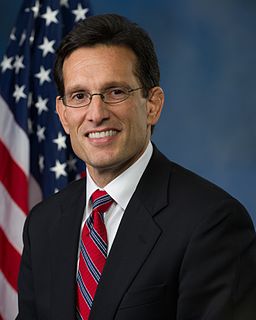A Quote by Eric Cantor
I am hopeful for the American people that we can actually improve the outlook for bringing down costs in health care.
Related Quotes
There are tax increases throughout this Obamacare thing. It is just an expansion of government for the purposes of redistribution of wealth, and it's being said it's a health care bill to improve the lives of the American people and provide more access to the health care system for the American people who were denied it. It's all a sham. It's all a giant hoax just like this climate change thing is.
The Republicans want to repeal the Affordable Care Act, I want to improve it. I want to build on it, get the costs down, get prescription drug costs down. Senator Sanders wants us to start all over again. This was a major achievement of President [Barack] Obama, of our country. It is helping people right now.
I've done a contract with my district. I have term-limited myself. I am not taking the pension. I am not taking pay raises, and my family and I are bringing our own health care to Washington, D.C. And my dad taught me as a kid to lead by example - Congress should not have anything better than the American people.
What sensible people have got to do is not simply repeal the Affordable Care Act without any alternative, but you've got to sit down and say it's OK, what are the problems. How do we address it? How do we move to universal health care? How do we lower prescription drug costs? How do we make sure that people don't have outrageous deductibles? You just don't throw 20 million people off of health insurance. You don't privatize Medicare.






























